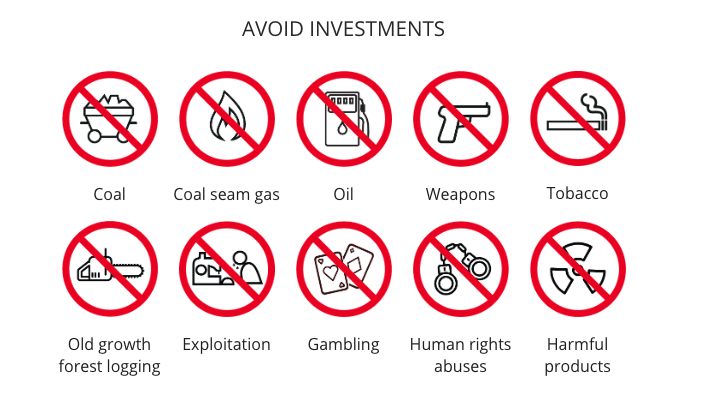Ethical investing: Can mining be an ethical investment?

In this week’s instalment on Stockhead’s Ethical Investing series we ask if mining can be an ethical investment?
It goes without saying mining can cause environmental damage. But it can create economic growth through employment and tax revenue. Is it therefore worth it?
In short, it depends. Stockhead spoke with several industry experts and the consensus was mining can be ethical in some circumstances. Some even had “checklists” to judge each case.
Stockhead spoke with ethical financial advisor Stuart Barry who runs Tas Ethical and author of The Rich Greenie. Here was his checklist for judging the question:
- Appropriate payment for the resource use
- Consumerism
- Intergenerational equity
- Taxes
- Environmental issues
- Appropriate remediation
- Use of virgin materials vs recycling
- Inappropriate lobbying/manipulation of our political system
“My clients would expect me to be able to answer those questions on a stock I would propose,” he said.
Barry admitted the starting assumption was that it was unethical and blamed industry lobbyists for appearing to look like the industry “does not give a stuff”. But he said clients had to look closely at each issue and revealed climate actually worked both ways.
The lower emissions made by uranium was why some of his clients were interested in it.
“Everyone will form their own conclusions, my clients see it as a deeply personal matter,” he said.
“Some will say its [uranium] an ethical issue if it goes into weapons.
“But those concerns are outweighed by the need to drop emissions, so some will decide they can live with it.”
Think of the end use
Another expert Stockhead spoke with was Stuart Palmer, head of ethics research at Australian Ethical Investing.
“While we exclude fossil fuel mining, we invest in lithium mining companies which operate responsibly,” he said. “Lithium is mostly used for battery energy storage and other positive uses like more energy efficient production of glass.”
He nonetheless said his firm also had a checklist to judge investments.
“When looking at the mining sector we balance many factors including how a mineral contributes to peoples’ well-being; whether there are more sustainable alternatives; how recycling and reuse can help meet demand; and the harm which extraction, processing and use of the mineral causes people, animals and the environment.”
Minerals Council of Australia CEO Tania Constable also noted the importance of considering the end use.
“Australian mining provides the resources for modern life, technology and business,” she said. “Mining is important to life today and provides the foundations for the innovations of tomorrow.”
Other minerals were more contentious. AMP Capital’s Mark Wood said: “Things like iron ore and copper and nickel are fundamentally required for enabling people in developing countries to improve their standards of living.”
“We see that as a huge benefit.”
Actually just think of the end
But Palmer said Australian Ethical was having none of that.
“We don’t currently invest in minerals like iron ore and copper which are used widely across the economy and society for both positive and negative products, including many things which are over-consumed and end up in landfill well before the end of their useful life,” said Palmer.
“Instead we focus on investment in the positive things produced by these minerals, like wind turbines and sustainable transport and buildings.”
Barry said: “We all use iron ore and steel and we have all used the mining industry. Every industry sector and company has ways to achieve an end to reach ethical and unethical.”
Minerals Council of Australia CEO Tania Constable also noted the importance of considering the end use.
“Australian mining provides the resources for modern life, technology and business,” she said. “Mining is important to life today and provides the foundations for the innovations of tomorrow.”
Oil and coal
But it was a general consensus that oil and coal usually was not considered part of an ethical stocks portfolio. Ian Wood told Stockhead AMP Capital excluded metallurgical coal and oil because the benefit did not outweigh the environmental damage.
This picture on Australian Ethical’s home page more than suggests oil and coal has no business here:

Barry said: “Some will decide they can live with it. It gets down to the subjective level, some might say it’s [the oil industry] is an evil empire.”
Doing it ‘right’
But environmental issues are just one of many issues mining companies can run into. Another is tax issues. Companies mining in developing countries have been accused of paying low taxes albeit usually through legal means.
Yesterday, Oxfam accused several mining companies of tax avoidance in Africa. While companies named in the report categorically denied any wrongdoing it is a common allegation.
Barry said paying tax is “part of having a social license to operate”.
“It is a massive hurdle to a licence to operate if you don’t carry the load as everyone expects.”
- Subscribe to our daily newsletter
- Join our small cap Facebook group
- Follow us on Facebook or Twitter
But overall it would be wrong to give a flat-out “no” to the question of whether or not mining can be ethical.
AMP Capital’s Wood said: “There are some challenges, you still need to do it right, managing environmental issues and social issues, OH&S and dependant on what countries you need to worry about bribery and risks.
“But if a company can manage them well we can see them as part of them [our ethical funds].”
UNLOCK INSIGHTS
Discover the untold stories of emerging ASX stocks.
Daily news and expert analysis, it's free to subscribe.
By proceeding, you confirm you understand that we handle personal information in accordance with our Privacy Policy.








